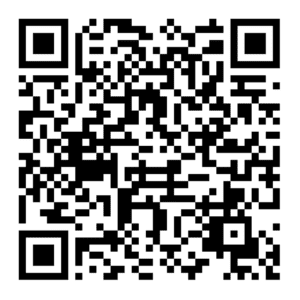The Iceberg Method: Building a Scalable Sales Process
When it comes to scaling sales, many business leaders think the answer lies in more technology, bigger teams, and automation. While these elements play a role, the real secret to scalability lies in creating systems that allow your sales team to focus on what they do best: connecting with clients and solving problems.
In this episode of the $4M Strategies™ podcast, Carl J. Cox, CEO of 40 Strategy and 40 Accounting, talks to Chief Transformational Officer, Jason Cutter who reveals his unique approach to building scalable sales systems, which he calls the “Iceberg Method.”
What Is the Iceberg Method?
Think of your sales process as an iceberg. The part above the surface represents what most people focus on—the closed deals, the celebrations, and the ringing of the gong when contracts are signed. While these moments are essential, they’re only the tip of the iceberg.
Below the surface is where the real work happens: the systems, processes, and tools that ensure your team can repeatedly achieve success. This foundation is what enables scalability. Without it, your sales process will struggle to support growth, no matter how talented your team may be.
Jason explains that many organizations mistakenly believe that hiring great salespeople and offering lucrative commission structures are enough to drive sales. While these tactics can produce short-term wins, they won’t create a sustainable or scalable process.
Why Systems Are Essential for Scalability
Scalability requires more than just talented salespeople; it requires systems that handle the repetitive and administrative tasks that often bog down your team. Jason highlights several key areas that must be addressed to create a scalable foundation:
- Compensation Plans: Clear and motivating compensation structures that align with company goals.
- Leadership and Culture: Strong leadership and a company culture that supports growth and collaboration.
- Processes and Tools: Implementing scripts, CRMs, and reporting systems to streamline workflows.
- Learning and Development: Ongoing training to ensure your team stays sharp and adaptable.
- Automation: Leveraging technology to handle pre-call research, administrative tasks, and other time-consuming activities.
By building these systems, you allow your sales team to focus on what matters most: connecting with clients and closing deals.
The Human Element in Scalable Sales
One of the most surprising insights Jason shares is that scalability isn’t about turning salespeople into robots. Instead, it’s about freeing them from the tasks they hate so they can spend more time doing what they love: engaging with clients.
“Salespeople in this day and age have one job,” Jason says. “It’s to be a human that talks to another human who is scared, worried, and unsure of what decision to make. The more you can take away the stuff they don’t want to do, the more they can focus on what really matters.”
By removing the administrative burden through systems and automation, you enable your sales team to focus on building trust, addressing client concerns, and solving real-world problems. This human-centered approach not only drives sales but also strengthens long-term client relationships.
Leveraging Technology Without Losing Humanity
Jason emphasizes that technology should be a tool to support your team, not replace them. For example, tools that automate pre-call research can save hours of time, allowing your team to prepare more effectively for client meetings. This means your salespeople can spend less time on administrative tasks and more time connecting with clients.
The key is to strike a balance between automation and human interaction. Use technology to handle the repetitive tasks, but let your sales team shine where it matters most—building relationships and closing deals.
Key Takeaways from the Episode
If you’re looking to build a scalable sales process, here are the key takeaways from this episode of the $4M Strategies™ podcast:
- Focus on the Foundation: Invest in the systems, processes, and tools that make scalability possible. Don’t rely solely on talent or motivation to drive results.
- Leverage Automation: Use technology to handle repetitive tasks so your sales team can focus on client engagement.
- Keep It Human: Scalability doesn’t mean losing the personal touch. Build systems that allow your team to connect with clients on a deeper level.
- Prioritize Training and Development: Equip your team with the skills and knowledge they need to succeed in a scalable environment.
- Align with Company Goals: Ensure your sales process aligns with your organization’s broader mission, vision, and values.
Final Thoughts
Scaling your sales process doesn’t happen overnight, and it’s not just about adding more tools or people to your team. It requires a thoughtful approach to building systems that support growth while empowering your sales team to focus on what they do best.
As Jason Cutter explains, the true secret to scalability lies in what happens below the surface. By investing in the foundation of your sales process, you can create a system that’s not only scalable but also sustainable and human-centered.
Ready to learn more? Tune in to this episode of the $4M Strategies™ podcast and discover how to transform your sales process for scalable success.
Free Download: Overcoming Objections
Connect with Jason:
Listener Feedback:














